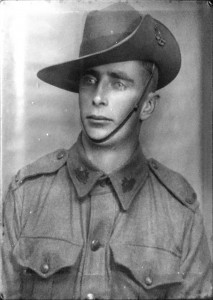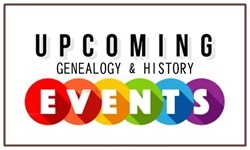Reminiscences of WW2 from My Grandparents – Part 1
“Don’t talk about the war to your grandparents”. That’s what I was told. So I didn’t.
But fortunately for me (and the rest of my family), someone did. And for that I’m eternally grateful.
When a friend was doing a school project on WW2 and needed to interview someone about the war, and didn’t have any reli’s here in Australia who were in the war, she asked my grandparents, Cecil and Evelyn Hannaford (nee Randell).
So I have to thank both Cathryn and my grandparents for this, because if she hadn’t asked, I guarantee that these memories would have been lost forever.
Before I begin I shall just say that the original interview is quite long, so I won’t include every question, but even so it’s still long enough that I’ll split this over two posts.
The introduction …
As a brief introduction, at age 25 Cecil Hannaford joined the army in 1940, and was trained at Woodside Army Camp before going aboard in 1941. During his time with the army he travelled to Libya, Palestine, Syria and Egypt. Aged 25 when he signed up, he went away as a driver, but also had to man the anti-aircraft guns at times.
My grandma, Evelyn Hannaford (nee Randell) lived at Gumeracha with her family during the war. On their farm they grew vegetables which were needed for the army.
The interview …
How old were you when World War II was declared?
Mrs H. 23 years old.
Mr H. 25 years old.
In what country were you living in? In what state?
Both. Australia, South Australia. Living at Cudlee Creek.
Were you living at Cudlee Creek all through the war?
Mrs H. I was at Gumeracha during the war.
Mr H. I was all over the place.
Do you remember what you were doing on the day it was declared?
Mrs H. No.
Mr H. Probably working.
Did someone tell you about it or did you hear it on the radio?
Both. Heard it on the radio.
Mr H. We were up are your (Mrs H.) place when we heard it.
Mrs H. Sir Winston Churchill announced it that England had declared war on Germany.
Mr H. Then Menzies, our Prime Minister followed.
So you knew each other then?
Mr H. Yes, we were going together (going out).
How did you feel when it was declared? Were you really bothered?
Mr H. No, not really.
Mrs H. Never too much notice because it was still overseas in those days, it only got much closer when Darwin was bombed.
How did your life change after the outbreak of the war? Did it change dramatically?
Mrs H. I think it might have changed in that were were soldiers about, has to really put our nose to the grindstone.
How did it affect your family?
Mrs H. The boys all had to go for medicals. What did they call that?
Mr H. Conscription. You were either conscripted or volunteered, whichever you preferred.
Mrs H. One brother, well I suppose they both volunteered, but one was rejected and one was kept. He went into the airforce.
Were you in the Army, or the navy or the airforce?
Mr H. In the army. About 1940 I joined. We stayed in South Australia for just after twelve months.
Were you trained at all?
Mr H. We were trained at Woodside Army Camp. Then we were married in 1941 and went away soon after that.
Where did you go to?
Mr H. We went to [unreadable], then on to Palestine for a little while, then went to Syria. Spent a few month in Syria, then down to Egypt, to El Alamein.
Did you have to wear a uniform?
Mr H. Oh yes. It was khaki green.
Was it horrible?
Mr H. No it wasn’t that bad.
Mrs H. They look very smart in their uniforms.
Mr H. We had a khaki woollen uniform and then we had the cotton uniform which was a paler shade for working.
What was the fighting like where you were?
Mr H. As far a I was concerned it wasn’t too bad, because we were on the big guns.
What was that like?
Mr H. Very nice!
Mrs H. Yes. He went away as a driver for most of the time, but when we had a fight on we had to help on the guns especially as they had one or two casualties.
What did you eat? Did you have ample food?
Mr H. Oh yes. Quite sufficient food. We had stews, sardines, tinned fish, salmon.
What was the stew like?
Mr H. It was as good as you could have expected from an army cook. It wasn’t too bad.
Do you think that all of that has changed you outlook of life?
Mr H. Very little. I don’t think I’ve changed much that way as far as that goes.
Did you do anything which was related to the war?
Mrs H. Yes. We grew the vegetables for the army.
What vegetables were they?
Mrs H. Oh everything. Carrots, turnips, swedes, beans, peas, caulis, cabbage, pumpkins, everything imaginable.
So they all went into the stew?
Mrs H. Yes. But I never cooked it, we only grew them.
Did you receive many letters from your family?
Mrs H. We didn’t get many letters between each of us. They all had to be censored before they went out and before they came home. One of my letter I got he (Mr H.) had said, take the stamp off and you will find our what boat I came on. And, of course that stamp has been taken off and the piece cut out of the envelope, we knew all the same that he got on the Queen Elizabeth.
Mr H. That was a good experience sailing on the Queen Elizabeth up to Palestine.
What was it like?
Mr H. Fantastic.
Was it a normal size boat or a big ship?
Mr H. it was very big. It was especially set up for troop carrying.
So there were lots and lots of soldiers on there?
Mr H. Yes. Thousands.
Mrs H. They had a terrific life! They had to take turns in going to bed.
Mr H. No. That was the Americans. The Americans were taken across to France and Britain and there they took it in turns sleeping in the beds. It’s one of those trips (on the QE) that you read about but never see because we were going around the South Coast on the Southern Ocean, before we went to Perth called into Fremantle and then we went onto Trincomalee. Going across the South Ocean was fairly rough and this old boat, just a gentle roll it was just marvellous to travel on.
Mrs H. There were so many on it, so it was stable. Nothing like going across to Tasmania on the little boat.
——————
The rest of the interview will follow in Part 2. In that they cover weather, ration books, working, war precautions at home, dropping of the bomb, end of war, coming home and more.
But one more mention need to be made to Cathryn for allowing me to reproduce some of her assignment (interview) here. THANKYOU .






How wonderful to have this! Sometimes I think we should get strangers to do interviews and we’d get more or different answers.
A wonderful memory to have had created!
Oh my goodness I was just googling to see if I could find out when Grandpa served (to work out if he was home from fighting when my mum was born and I got a link to your blog. I must have missed it when you first posted.
You are right that barring this we might have had nothing! Thank you Cathryn